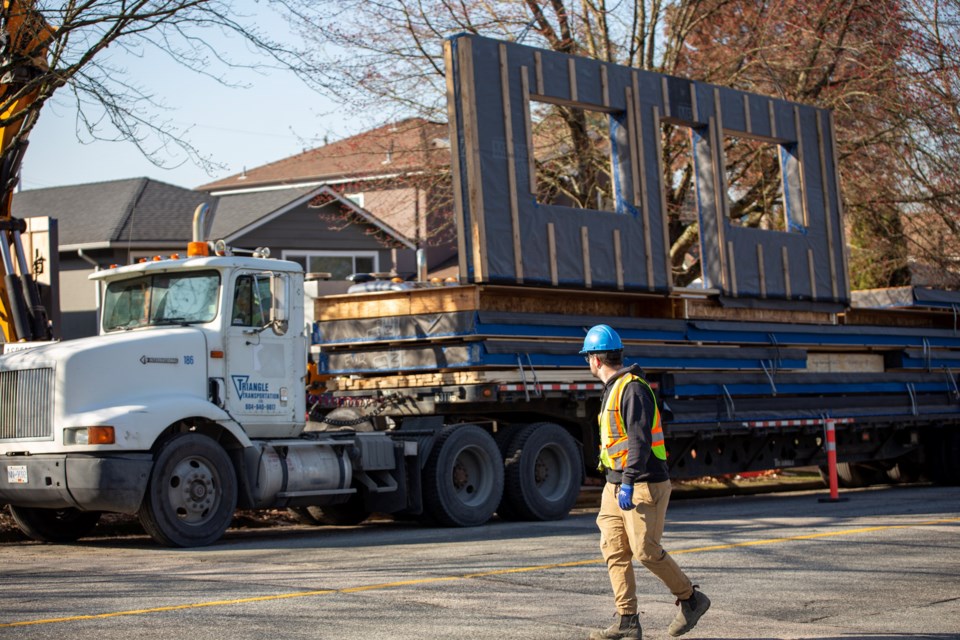For many B.C. builders, constructing a home in under two weeks is an impossible feat; but one North Vancouver-based company was able to construct the frame of a home in under two days.
The home represents the first installation of a project using Building Offsite Sustainable Systems (BOSS), a process which involves manufacturing components of the home off-site in a controlled factory setting, according to BCollective Homes, the company responsible for the project.
“The BOSS initiative is a catalyst for collaboration,” said Chris Hill, president of BCollective Homes. “It's publicly available; we're sharing a lot of this. We've got three workshops. We're running 150 to 200 people through this to really share what we're doing, because ultimately if there's enough supply in the market, prices will come down.”
According to a recent RBC report, Canada will have to build an additional 332,000 rental units over the next three years in order to meet the optimal vacancy rate of three per cent. This would represent an annual increase in construction of 20 per cent. Hill said that when it comes to construction, “time is money.”
“By erecting a house with all these panels in a couple of days, it's allowing us to change the paradigm a little bit, and we're speeding everything up,” he said.
Assembly for the home, from the initial installation on site to when the owners move in, is roughly four to five months, according to Hill. He said that the team is working hard to reduce this timeline. The time it took to manufacture the panels for the home’s frame was a “couple weeks.”
The speed at which the home’s frame was constructed, roughly 18 hours, resulted in an approximately 20 per cent reduction in overall project costs, according to BCollective.
In addition, the BOSS approach allowed the project to reduce on-site disruptions such as noise, waste, and limited the environmental impact of construction by roughly 50 per cent or more.
“The construction noise on-site was really quiet. For the crew and that neighbourhood, impact of noise, trucks coming and going, saws, sawdust and waste... it's real. Construction is a messy, dirty thing. And it was pretty amazing to see it go up that quickly and really have that positive effect,” Hill said. “Neighbours were literally jumping for joy on their deck, watching this thing go up…they were like two thumbs up.”
Greenhouse gas emissions as a result of the project were reduced by approximately 40 per cent, according to BCollective. The panels used to construct the home are carbon-storing, said Hill.
“Which is really critical, because concrete or so many other products are [carbon-positive], and are contributing to that climate change issue. And that's what we're really working towards, is how can we as an industry reduce that number?” he said.
The installation of the 2,700-square-foot home is located on the 3000 block of East 22nd Street in Vancouver.



